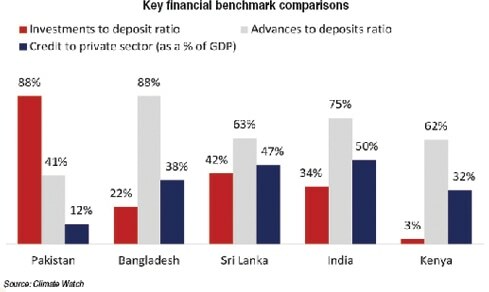Haseena, a young widow in her 30s and mother of six, five daughters and a son, chose death over life. Overwhelmed by the burden of raising children, the youngest just three and the eldest 13, without any income, assets, skills or support, she lost hope. Her breaking point came when one of her daughters died of kidney failure due to lack of medical care.
Originally from a small village in Bahawalpur, Haseena lived a hard but content life in Karachi with her husband, a driver, and worked part-time as a maid. They rented a one-room portion in a shanty neighbourhood, but their daughters were in school, and her husband had a stable job with regular overtime.
However, when her husband fell ill and lost his job, their savings quickly vanished. Forced to sell their belongings, the children dropped out of school, and the family eventually returned to their village destitute.
With both parents gone, Haseena’s children moved in with their aunt, Shamshad, a maid in Karachi. While they may survive with some luck, it would take a miracle to secure a decent future for them in a country where the vulnerable are often left behind.
Tragically, stories like this are all too common among working families in Pakistan, where poverty often shapes their fate. What makes this even more tragic is Pakistan’s lack of focus on the core issue of its people’s well-being. The callous waste, mistreatment and mismanagement of the country’s precious human resources is inexcusable.
Current economic growth is not sufficient to reduce the number of improverished people
While the rest of the world has embraced real-time data through technology, Pakistan’s latest official poverty data is five years old, based on the Pakistan Social and Living Standards Measurement (PSLM) Survey 2018-19, and the country abandoned tracking and reporting income equality altogether years ago.
The annual Pakistan Economic Survey now dedicates an entire chapter to the government’s pro-poor initiatives, yet it offers no information on the actual incidence of poverty or the state of wealth and income inequality.
Sources in the federal Ministry of Planning shared an internal brief on poverty based on outdated data. It states: “The poverty rate in Pakistan fell from a high of 34.7 per cent in 2001-02 to about 21.4pc in 2018-19.”
However, the full impact of recent internal and external shocks — such as Covid-19, floods, political instability, renewed terrorism, and International Monetary Fund-led stabilisation policies — on poverty and public well-being has yet to be accurately assessed.
In its latest report, ‘Pakistan Development Update’, the World Bank stated that Pakistan’s current economic recovery is neither sustainable nor sufficient to reduce poverty, with 40.1pc Pakistanis now living below the poverty line, up from 39.9pc in 2023.
The poverty headcount rate, measured at the lower-middle-income country poverty line of $3.65 a day (2017 purchasing power parity), is expected to remain around 40 per cent over fiscal years 2024-26. The World Bank described the situation as a “silent, deep human capital crisis”.
Dr Naeem Zafar, Chief Statistician, Pakistan Bureau of Statistics (PBS), explained the absence of poverty data, stating: “Poverty statistics are generated through PSLM survey every two years. The last was conducted in 2019-20. In 2022, the PBS was directed by the Council of Common Interest to focus on the seventh housing and population census, a massive undertaking that occupied all our resources through 2022 and 2023.
“PSLM data collection occurs quarterly over a year; data for the 1st quarter has been gathered, and collection will be completed by the second quarter of 2025. As soon as possible, PBS expects to release the preliminary results by the end of 2025.”
Majyd Aziz, a business leader and former president of the Employers Federation of Pakistan, expressed frustration with the government’s numerous poverty eradication initiatives, highlighting a contradiction in public behaviour.
He remarked, “Pakistan is grappling with unrest fueled by the deprivation and frustration of its marginalised population, particularly the youth. They watch elites preach social revolution, yet promises adopted often worsen poverty. Anti-poverty programmes have made little impact, largely due to bureaucratic red tape, as seen in the failure of land reforms. It’s time for the poor to demand a comprehensive, transformative programme that addresses inequality, creates real opportunities, and confronts the systems that perpetuate their oppression.”
Dr Nadeem ul Haque, former Vice Chancellor of the Pakistan Institute of Development Economics and Director of Socioeconomic Insights and Analytics, a thinktank, has long been critical of the media’s fascination with poverty data over growth and its drivers. Commenting on poverty, he remarked, “Poverty is often used as a political tool to secure a larger share of global funds earmarked for the poor in developing countries. The higher the poverty rate, the more likely it is to attract donor sympathy.
“There will always be inequality and poverty, but the debate lacks clarity on acceptable levels of both. Discussing poverty is pointless; the real solution lies in fostering growth and development. Stop measuring poverty and inequality; focus on growth instead,” he added.
Published in Dawn, The Business and Finance Weekly, October 28th, 2024













































Dear visitor, the comments section is undergoing an overhaul and will return soon.